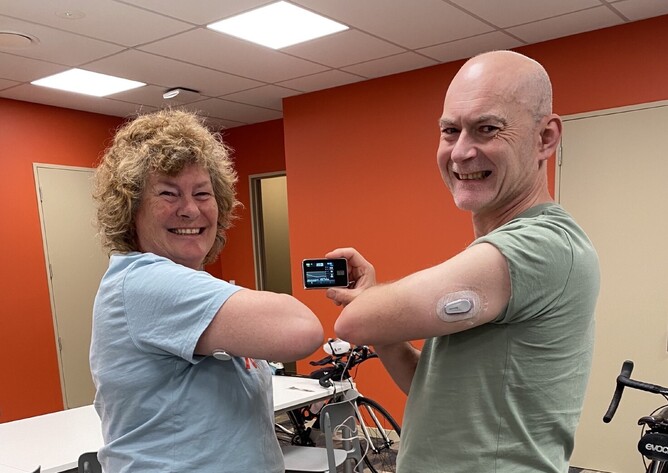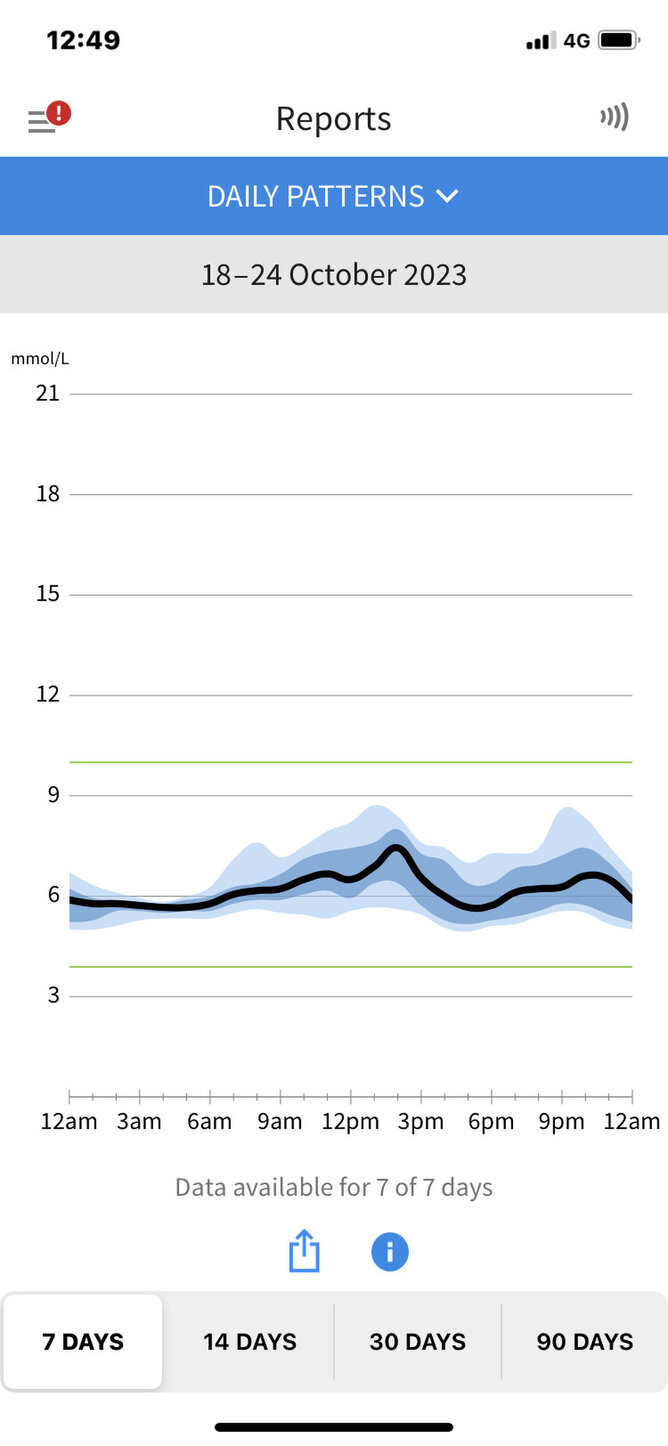Continuous Glucose Monitoring Device (CGM) Experience - 2
So the story was that Kate, our Nurse Practitioner, was offered the opportunity to try out Continuous Glucose Monitoring (CGM) options to get a better understanding of the technology that can benefit her patients with type 1 diabetes. We can report back that Kate knew the theory before, but can now say the reality stacks up very effectively. Kate has also recently been talking with Pharmac regarding the funding for CGM and making insulin pumps more accessible for people with type 1 diabetes. This is a long running discussion and there has been advocacy from a number of organisations, groups and motivated individuals to try to get funded technology more widely available.
While Kate doesn't have diabetes herself, her experience gave her an in-depth understanding of the amount and type of information that could be gathered, which was available in real-time by scanning her smartphone over the CGM sensor attached to her arm. Kate wore the Libre CGM and reports she forgot she had it, and she found the feedback very interesting and useful, in particular in relation to the response of her body to the types of food she was consuming. She felt it impacted her understanding of herself, and the impact of her nutrition and exercise positively.
Kate is an avid endurance athlete and last weekend went to Napier on a training camp for triathletes. She talked with Jason who has had type 1 diabetes for many years and over the last few years he has self-funded his insulin pump and CGM (Dexcom G6). Jason has reportedly found the technology made a huge difference in his life, and his ability to be able to exercise safely, including doing the very long cycle rides.
Kate's conclusion: Pharmac are getting ready to fund this equipment for people with type 1 diabetes which is great. The benefits are there in a range of areas from safe management (and having a life) for the parents of children with Type 1, to teens still learning what works and doesn't work for them day-to-day, to adults wanting to have as normal a life as possible including being able to participate in the activities that others without diabetes take for granted. Congratulations Jason (and others) on making the technology work for you and many happy and effectively-fueled rides ahead.



